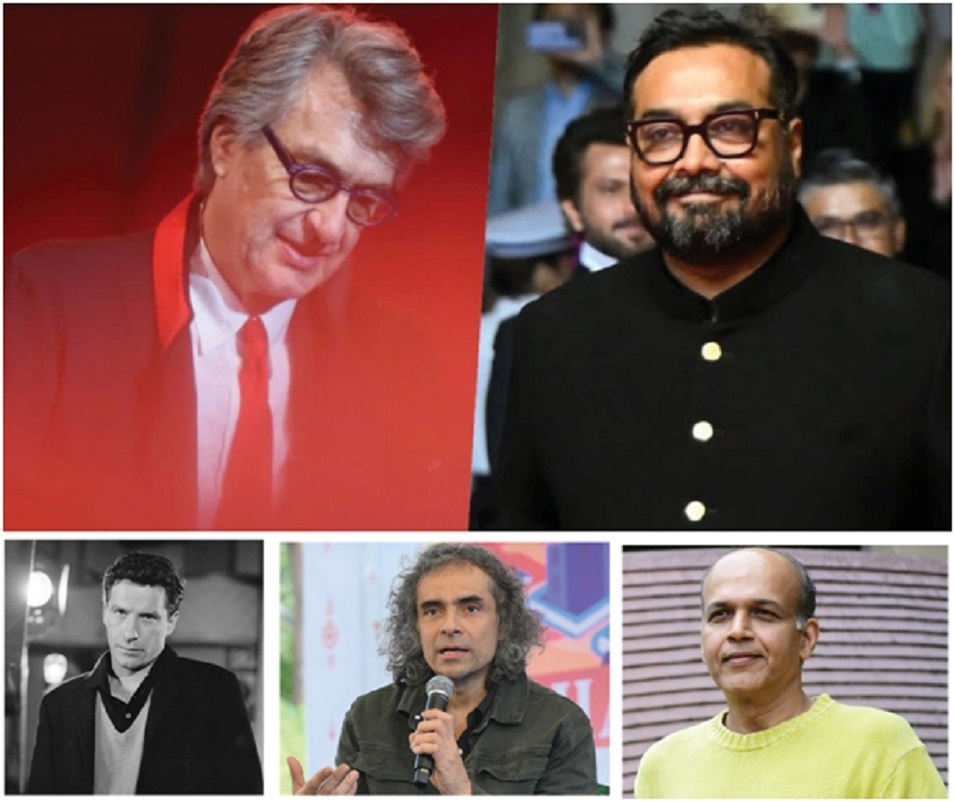From Wim Wenders To Anurag Kashyap: Filmmakers Who Discover Their Stories During The Shoot
Total Views |

In an industry often driven by rigid scripts and detailed pre-production planning, a select group of filmmakers stands apart for their organic approach to storytelling. These directors prefer to discover the soul of the film during the shoot itself, shaping the narrative through improvisation, on-set experimentation, and the unpredictable alchemy of actors, locations, and moments. From Germany's Wim Wenders to India's Anurag Kashyap, these filmmakers challenge the conventional filmmaking process, embracing spontaneity as a core creative tool.
At the heart of this approach is a belief that stories, like life, are not fixed.
They evolve, grow, and sometimes surprise even their creators. These directors do not simply film a script; they find the film as they go, often deviating significantly from the initial screenplay. The result is cinema that feels raw, intimate, and emotionally resonant.
Wim Wenders
Ernst Wilhelm "Wim" Wenders, one of the leading figures of New German Cinema, exemplifies this ethos. Known for classics like Alice in the Cities, The Wrong Move, and Kings of the Road, together known as the Road Movie trilogy, Wenders often begins filming with only a loose structure in mind. According to a newswire, he embraces the idea of filmmaking as a journey rather than a destination. Locations, actor interactions, and even weather patterns often influence the course of his films. For Wenders, the magic lies in the discovery.
Wenders has received major international honours over the decades, such as awards at Cannes, Venice, and Berlin, a BAFTA, and three Academy Award nominations. But perhaps his most enduring contribution is his advocacy of filmmaking as an evolving, living process.
John Cassavetes
One of the first proponents of this philosophy was American director John Cassavetes. Along with helping to define the American independent film movement, Cassavetes directed emotionally charged dramas like Shadows, A Woman Under the Influence, and Faces. His productions were famous for giving his actors creative freedom to discover their characters, taping numerous takes before the scene developed naturally. He funded and distributed his own movies, sacrificing profits for creative control and artistic integrity.
Cassavetes's approach to improvisation was so involving that the lines between actor and character tended to blur. This resulted in performances that were raw, human, and emotionally impactful.
Anurag Kashyap
Anurag Kashyap has established himself as someone who is not afraid to test limits, content-wise and process-wise. While his movies such as Dev.D, Gulaal, and That Girl in Yellow Boots show him enjoying gritty realism and experimentation, it is Gangs of Wasseypur and Ugly that are the best examples of his improvisational nature.
Kashyap usually goes into production with barely an outline and allows the film to take shape through rehearsals, actor suggestions, and spontaneous decisions. Scenes are rewritten on set, even reimagined in part. It's a high-risk approach, but when it works, it results in cinema that is visceral and unpredictable.
Dibakar Banerjee, Imtiaz Ali, And More
In India, other directors have also incorporated elements of this improvisational style. Dibakar Banerjee, for example, balances strict pre-production with adaptive on-set experimentation. His films like Khosla Ka Ghosla and Love Sex Aur Dhokha reflect a gritty realism born from this blend of structure and freedom.
Imtiaz Ali is another director known for prioritising emotional truth over scripted precision. In films like Rockstar and Tamasha, he often allows actors to improvise, believing that genuine emotion can't always be written in advance.
Nagesh Kukunoor also follows a similar path, especially in his early works like Hyderabad Blues and Iqbal.
His naturalistic style allows actors to present performances that come across as unforced and earthy.
Even industry stalwarts such as Rajkumar Hirani and Ashutosh Gowariker, while renowned for large-scale productions and elaborate scripts, adjust their approach on the set to match their actors and storytelling requirements. For instance, Hirani has admitted to modifying his direction to accommodate Sanjay Dutt and Arshad Warsi's differing acting styles in Munna Bhai M.B.B.S.

